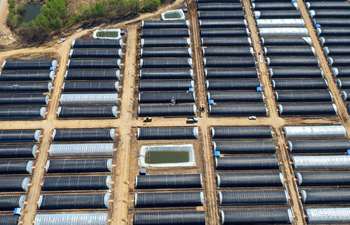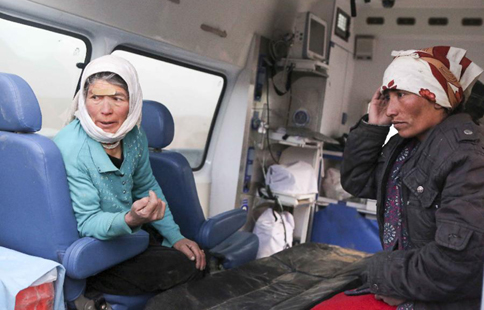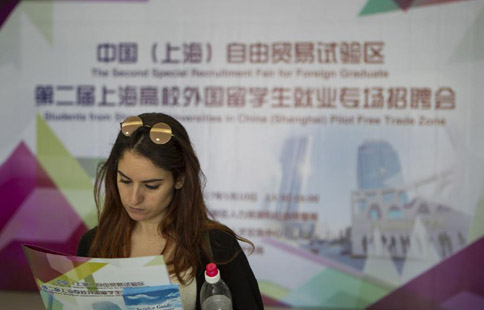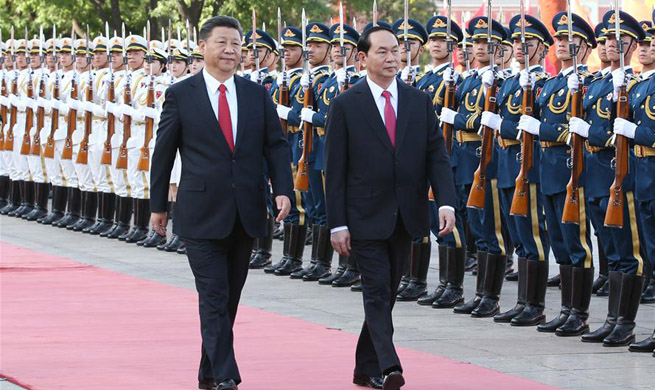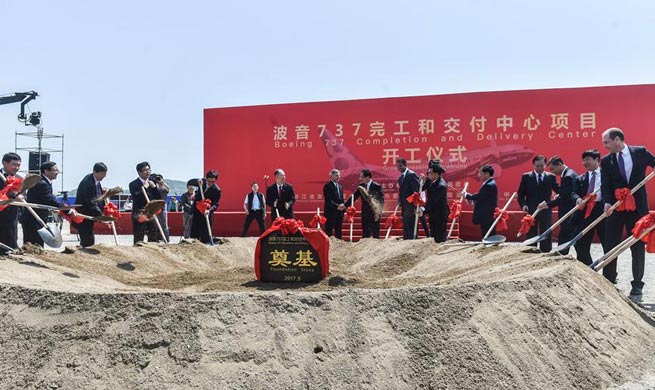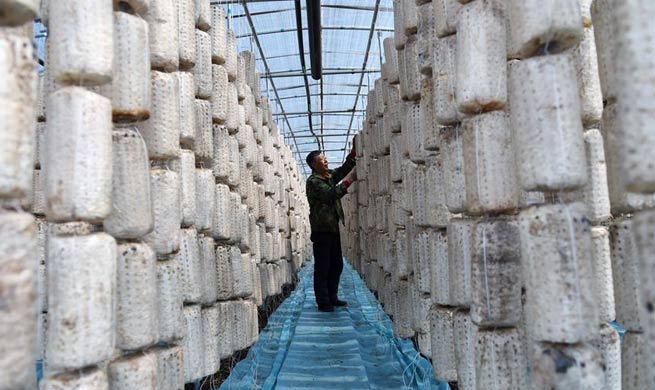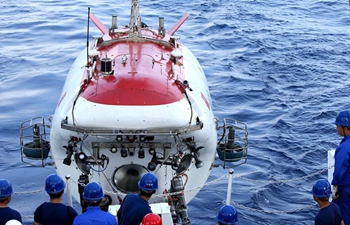ANKARA, May 11 (Xinhua) -- Turkey strongly criticized the United States on its decision to arm Kurdish militia fighting Islamic State (IS) in Syria, a move that comes days before a crucial meeting in Washington between Turkish President Recep Tayyip Erdogan and his American counterpart Donald Trump.
An angry Erdogan called Wednesday on the U.S. to immediately reverse this decision on arming fighters considered by Ankara as "terrorists."
"I hope very much that this mistake will be reversed immediately," Erdogan said, after Washington announced it would arm the Peoples' Protection Units (YPG) in the fight against militants in Syria.
Erdogan vowed to bring up "our worries" on the issue in talks with U.S. President Donald Trump on May 16 in Washington.
After Trump approved the arms supply to support a campaign to retake the Syrian city of Raqqa, Erdogan told a news conference he wanted to believe that Turkey's allies would side with Ankara, not with "terrorist organizations."
Turkey views the YPG forces as the Syrian affiliate of the Kurdistan Workers' Party (PKK), which has fought a bloody insurgency in southeast Turkey since 1984 and is listed a terrorist group by the U.S., Turkey and Europe.
The YPG has been seen by Washington as the best ally against militants in Syria.
"The supply of arms to the YPG is unacceptable," Deputy Prime Minister Nurettin Canikli told A Haber television on Wednesday in a first official reaction to the American decision. "Such a policy will benefit nobody."
The Trump administration announced Tuesday it will arm Syria's Kurdish fighters "as necessary" to recapture the key IS stronghold of Raqqa, despite intense opposition from NATO ally Turkey, which sees the Kurds as "terrorists."
The decision is meant to accelerate the Raqqa operation but undermines the Turkish government's view that the Syrian Kurdish YPG as an extension of the PKK.
"The American decision is incompatible with the NATO alliance between Turkey and the United States. The U.S. has clearly taken the risk of alienating a major player on the field, which is Turkey, sharing a 900 km border with Syria," said to Xinhua political commentator Deniz Zeyrek.
"Their mind is set and we will see if president Erdogan will talk sense into the Trump administration. It is a very difficult task for sure," he argued.
Washington is eager to retake Raqqa, arguing that it is a haven for IS (SDF) operatives to plan attacks on the West. American officials said that much of the weapons and equipment that were provided to the Syrian Kurds was already in Syria and could be distributed very soon.
Xinhua noticed that several journalists were tweeting on Thursday evening on heavy weapons arriving by lorries in Syria's northern Rojava region.
The US sees the SDF as its most effective battlefield partner against IS in northern and eastern Syria. White House said they're "the only force on the ground that can successfully seize Raqqa in the near future."
But Turkey worries that advances by the YPG in northern Syria could enflame the PKK insurgency on its soil and that the weapons supplied to this militia will fall into PKK hands, like it happened in the past.
In Ankara, the deception vis-a-vis the U.S. decision which came as high ranking Turkish officials such as the chief of the intelligence agency (MIT), Hakan Fidan, and the Chief of General Staff, General Hulusi Akar, were holding high level meetings in Washington to lobby against it, is very apparent in government circles.
"We were expecting that the new American administration would open a new page in our bilateral relations, after discord on Syria and last year's coup attempt, but now this is a deception," a source close to the Turkish government said to Xinhua.
The main opposition Republican People's Party (CHP) called on Erdogan to cancel his vist to Washington but this will apparently not be the case as Cavusoglu indicated that the visit will take place as planned.
Turkish Prime Minister Binali Yildirim also said to reporters that the U.S. failure to consider Turkey's sensitivities "will surely have consequences." He met U.S. Defence Secretary James Mattis. in London on Thursday.
Turkey viewed the May summit between Erdogan and Trump, their first face-to-face encounter as heads of states, as a chance to mend a relationship between two key NATO allies that was strained by a series of disputes under former President Barack Obama.
Another key issue that Erdogan will bring on the table at the White House is the extradition and also the provisional arrest of the Muslim cleric Fethullah Gulen, accused of being the mastermind of a botched coup in July 2016.
The U.S. is reluctant to say the least on extraditing this influential individual who has lived in Pennsylvania since 1999 and denies any involvement in the failed plot.
The U.S. Justice Department is yet to make a statement that the Turkish government delivered for Gulen's extradition.
Following the coup that claimed the lives of over 240 people, Turkish security forces have arrested thousands of people on suspicion of having ties with the Gulen network.






